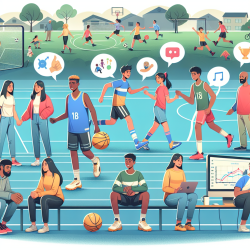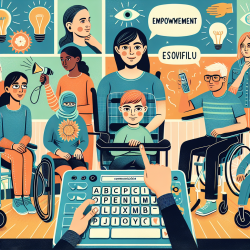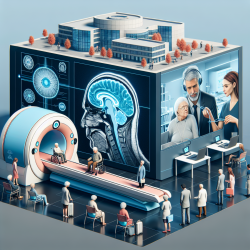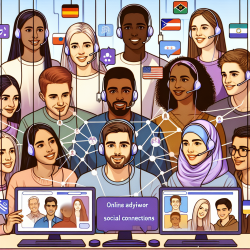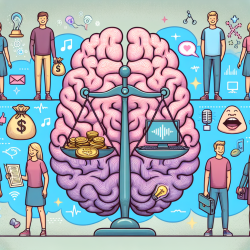Introduction
In the realm of speech-language pathology and child development, understanding the nuances of adolescent behavior is crucial. A recent mixed methods study titled "Links between Adolescent Athletes’ Prosocial Behavior and Relationship with Parents" sheds light on the significant role that sports and parental relationships play in fostering prosocial behavior among adolescents. This blog post aims to guide practitioners in enhancing their skills by implementing insights from this study and encouraging further research.
Understanding Prosocial Behavior in Adolescents
Prosocial behavior, defined as voluntary actions intended to benefit others, is a critical component of adolescent development. The study utilized a mixed methods approach, gathering quantitative data from 1,348 adolescents and qualitative insights from 12 adolescent athletes and their parents. The findings revealed that sports participation and strong parent-child relationships significantly contribute to prosocial behavior in adolescents.
Key Findings from the Study
- Sports as an Escape: Adolescents view sports as a refuge from daily stressors, allowing them to express themselves freely.
- Parent-Child Relationships: Effective communication and mutual understanding between parents and children are pivotal in enhancing prosocial behavior.
- Desired Behavior by Adolescents: Participation in sports instills values such as empathy, altruism, and respect, which are transferred to everyday interactions.
Implications for Practitioners
For practitioners, these findings underscore the importance of fostering environments that promote both physical activity and strong familial bonds. Here are some actionable steps:
- Encourage parents to actively engage in their children's sporting activities, not just as spectators but as supportive figures.
- Facilitate workshops or sessions that emphasize the development of communication skills between parents and adolescents.
- Promote sports as a tool for social and emotional learning, highlighting its role in developing prosocial behavior.
Encouraging Further Research
While this study provides valuable insights, it also opens avenues for further research. Practitioners are encouraged to explore the following areas:
- Investigate the long-term impact of sports participation on prosocial behavior beyond adolescence.
- Examine the role of different types of sports (team vs. individual) in shaping prosocial behavior.
- Explore cultural variations in parent-child relationships and their influence on prosocial behavior.
Conclusion
By integrating the findings of this study into practice, speech-language pathologists and educators can significantly enhance the developmental outcomes for adolescents. A focus on promoting prosocial behavior through sports and strong familial relationships can lead to more positive and resilient youth.
To read the original research paper, please follow this link: Links between Adolescent Athletes’ Prosocial Behavior and Relationship with Parents: A Mixed Methods Study.
